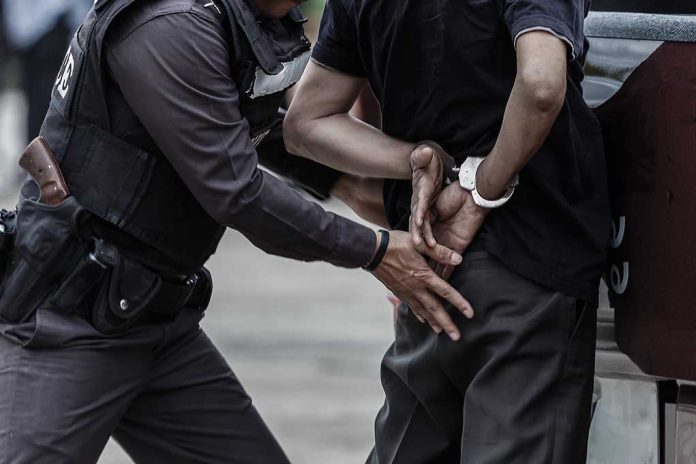
A lawsuit by 27 religious organizations challenges a controversial policy that allows immigration arrests in places of worship.
Key Takeaways
- 27 religious organizations filed a lawsuit against the Trump administration’s policy on immigration arrests in places of worship.
- The lawsuit argues that the policy infringes upon religious freedom and affects participation in services.
- Plaintiffs seek an injunction to halt immigration enforcement at worship locations.
- Policy change has reportedly decreased attendance due to fear of immigration raids.
Religious Organizations Challenge Policy
Twenty-seven Christian and Jewish organizations filed a lawsuit in the U.S. District Court in Washington, disputing a Trump administration policy that allows immigration arrests in places of worship. The plaintiffs, a coalition representing millions of worshippers, argue the policy infringes on religious freedoms and violates both the First Amendment and the Religious Freedom Restoration Act (RFRA). They claim the policy creates a climate of fear, reducing attendance and participation in religious activities, which undermines their mission to support migrant communities.
The religious groups highlight that the policy reversal now permits enforcement actions at sensitive locations like churches, schools, and hospitals without previous restrictions. This has reportedly led to decreased attendance in worship services and other church activities, adding undue stress to their religious missions.
ICYMI: 27 faith groups sued the Trump administration over executive actions to remove protections for houses of worship from immigration enforcement activity. @SCarson_News reported on the news w/ a local faith angle about Wisconsin churches' involvement: https://t.co/ssvSwaSa1s
— Liam Adams (@liamsadams) February 12, 2025
Arguments Against Enforcement in Worship Places
The lawsuit primarily seeks preliminary and permanent injunctions to restrain the Department of Homeland Security (DHS) officials from conducting immigration enforcement at places of worship. The administration, on the other hand, insists that the policy is crucial for preventing criminals from exploiting these places as safe havens. The debate centers on whether these arrests are a necessary enforcement measure or an infringement on religious and community life.
“Whatever interest DHS has in enforcing immigration law, it cannot meet its burden here of demonstrating that its interference with plaintiffs’ religious practices is the least restrictive means of serving that interest,” said Kelsi Corkran, lead counsel for plaintiffs.
Despite DHS’s defense, the plaintiffs underscore their religious obligations to help refugees and migrants, emphasizing the policy’s violations of core religious values and traditional sanctuary roles. The lawsuit suggests that religious communities are being forced to choose between aiding undocumented immigrants and exposing them to law enforcement actions.
More than two dozen faith groups Tuesday filed a lawsuit in federal court against the Trump administration’s decision to rescind a 30-year-old policy that restricted immigration enforcement in so-called sensitive locations such as places of worship.https://t.co/53XRq6f0jr
— David DeWitt (@DC_DeWitt) February 12, 2025
Legal Perspectives and Broader Impacts
Moreover, legal experts have raised questions about the potential success of the religious freedom argument in this context, given the long history of churches being viewed as sanctuaries. The Department of Justice has countered the lawsuit by arguing that its claims are based on speculative harm, asserting that immigration enforcement in churches has been a longstanding practice.
“We cannot worship freely if some of us are living in fear. By joining this lawsuit, we’re seeking the ability to gather and fully practice our faith, to follow Jesus’ command to love our neighbors as ourselves,” said Most Rev. Sean Rowe.
Additionally, the policy’s impact extends beyond church attendance, potentially affecting programs like food banks and shelters due to fear of raids. With the case now in court, both religious rights and immigration enforcement policies are in the spotlight, prompting further discussions on balancing these important aspects of public life.


